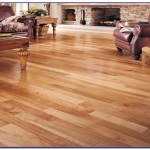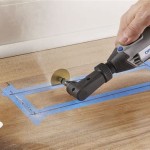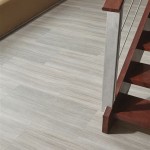Tongue And Groove Flooring: A Guide to Its Essential Aspects
Tongue and groove flooring, a timeless and versatile flooring option, has graced homes and commercial spaces for centuries. Its interlocking design, featuring a tongue and groove on the edges of the planks, creates a sturdy and stable floor with a classic charm.
Understanding the essential aspects of tongue and groove flooring is crucial when considering this flooring option. Here's a comprehensive guide to help you make an informed decision:
Material Options
Tongue and groove flooring comes in various materials, each with distinct characteristics:
- Hardwood: A timeless choice known for its durability, warmth, and natural beauty.
- Laminate: A budget-friendly option that mimics the look of hardwood while offering increased water resistance.
- Engineered Wood: A combination of hardwood veneer and plywood core, providing stability and moisture resistance.
- Vinyl: A versatile choice available in various styles, including wood-look and stone-look planks.
- Bamboo: A sustainable and durable option that resembles hardwood species.
Tongue and Groove Joint Profiles
The tongue and groove joint profile refers to the shape of the interlocking edges. Common profiles include:
- Square Edge: A traditional profile with a 90-degree angle on the tongue and groove.
- Micro Bevel: A subtle bevel on the edges, creating a slightly raised effect.
- V-Groove: A groove cut into the center of the plank, giving the illusion of individual planks.
Installation Methods
Tongue and groove flooring can be installed using two main methods:
- Floating: The planks are snapped together and laid over an underlayment without being attached to the subfloor.
- Nail-Down: The planks are nailed or stapled to the subfloor, providing a more permanent and stable installation.
Underlayment Considerations
An underlayment is crucial for tongue and groove flooring as it provides cushioning, noise reduction, and moisture protection. Common underlayment options include:
- Cork: Provides excellent sound absorption and thermal insulation.
- Felt: A budget-friendly option that offers moderate soundproofing.
- EVA Foam: A durable and moisture-resistant option that also provides cushioning.
Maintenance and Care
Proper maintenance is essential to ensure the longevity of tongue and groove flooring:
- Sweep or Vacuum Regularly: Remove loose dirt and debris to prevent scratches.
- Mop with a Damp Microfiber Pad: Avoid using excessive water or harsh chemicals.
- Apply a Hardwood Floor Cleaner: Occasionally apply a specially formulated cleaner to protect and enhance the finish.

All You Need To Know About Tongue And Groove Flooring Installation Reallyfloors America S Est Hardwood

5 Essential Tips For Tongue And Groove Flooring District Floor Depot

Tongue And Groove Vs Wood Flooring Direct

How To Install Tongue And Groove Flooring Blog

Tongue And Groove Vs Wood Flooring Direct

Tongue Or Groove Which To Install First

Tongue And Groove Or System Flooring Wood Beyond Blog

Tongue And Groove Wikipedia

Solid Wood Flooring Van Rensburg

What Is The Tongue And Groove On Laminate Flooring
Related Posts








